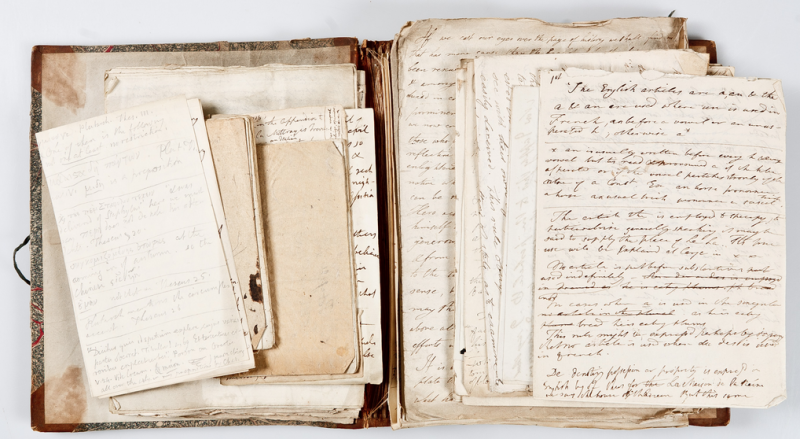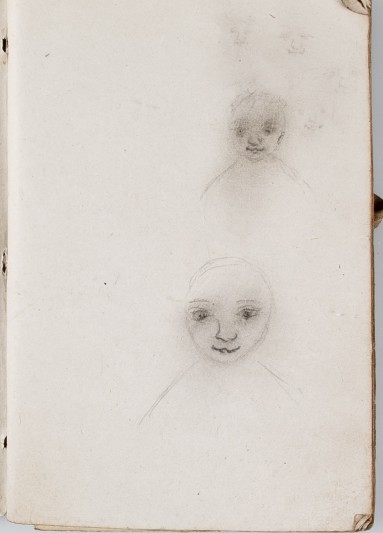The Royal Asiatic Society acquired the papers of Thomas Manning (1772-1840) from Maggs Bros. in September 2015. The archive consists of over 400 ms. letters to and from Manning, as well as papers, notebooks, diaries (almanacs), visiting cards, and printed ephemera, and the 99 pp. ms. copy of the narrative of the journey of Thomas Manning to Lhasa, which was published in 1876 in Narratives of the Mission of George Bogle to Tibet and of the Journey of Thomas Manning to Lhasa.
The acquisition was generously supported by the Friends of the National Libraries, who provided a grant of £10,000 and also facilitated a separate private donation for the same amount. Other major support for the acquisition came from the National Heritage Memorial Fund (£51,000) and the Victoria and Albert Museum/Arts Council England Purchase Grant Fund (£20,000).
Thomas Manning was among the first European lay scholars of Chinese language and culture, and one of the earliest sinologists from the British Isles. He was the first Englishman to visit Lhasa, which he reached in 1811, and where he met the child Dalai Lama. Shaped by the intellectual climate of late-Enlightenment Europe, Manning was distinguished by a rare independence of mind and breadth of cultural sympathy that signifies him as one of Britain’s most interesting early Orientalists. This collection of papers represents by far the largest collection of Manning material that has ever come to light.
Comprehensive examination of these papers by scholars will help inform and re-shape the collective understanding of the early intellectual engagement between Europeans and Asia, and specifically between Britain and China. The RAS was delighted to be able to acquire this major collection of Manning’s papers as part of its permanent collection so that it could ensure they would remain in the country and could make them available to scholars; most of the previously-known Manning letters and papers are now to be found in collections in other parts of the world.
The acquisition of the collection was announced in an article on the Guardian website in October 2015. It was also featured on the World Update programme on BBC World Service.

